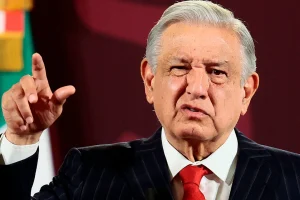At the end of September 2001, a global survey discovered that, after Afghanistan and Pakistan, Mexico was one of the countries where the terrorist attacks of the 11th against New York and Washington had the lowest rejection rates.
For those of us living in the United States at that time, such data was as crazy as someone celebrating that the house of an obnoxious neighbor was on fire. The ties between Mexico and the United States have long been so powerful that North America could well be explained as a single, highly integrated economy. The community of Mexican origin located here is made up of tens of millions of people who, with their work, culture and values, enrich their new homeland.
That the common border itself is a kind of scar from the military invasion of 1846-47 in which Mexico lost half of its territory, is a fact that seemed destined to be forgotten. At least since the negotiation of NAFTA, the Mexican idea of modernity has pointed north; even during the previous government when the last of the old taboos of “revolutionary nationalism” collapsed: the opening of the energy industry abroad.
Certainly, at a rhetorical level, the different governments knew how to disguise the pragmatism that was forced upon them by the brutal inequality of power between the two countries. From time to time, the need to “grow the internal market”, “get closer to our Latin American brothers” or “open up to the other big economies” is invoked. And even if it was for domestic consumption, patriotic propaganda functioned good enough.
Until Mr. Trump arrived. From the day one of his adventure that took him to the White House, the gentleman of the orange toupee has directed against Mexico a brutal strategy of shock that, it must be recognized, has worked. Two scared presidents and a good part of the Mexican elite in panic have allowed him his best chance to be re-elected, thanks to his pounding against the “bad men”.
Despite having the largest consular network in the United States, Mexico today pays the cost of decades of opting for decorative diplomacy instead of building alliances with local powers and its own diaspora. Although Trump is the most unpopular leader since Richard Nixon, not even the auto industry itself – the main beneficiary of NAFTA – comes out to confront him.
Although from the narrowest view of realpolitikit might make some sense to have avoided the imposition of tariffs on exports, it seems difficult to accept that surrender is the best option by 2020, or, perhaps, by 2024. From extremist nationalism, the diplomacy of “the open hand”? Without sovereignty and national dignity, what is left?
The small crowd gathered in Tijuana few weeks ago to “celebrate” an emergency agreement that denies much of the essence of the project that brought power to the new regime, is a clear testimony of the fragility of the “love and peace” strategy before the apprentice of tyrant.










